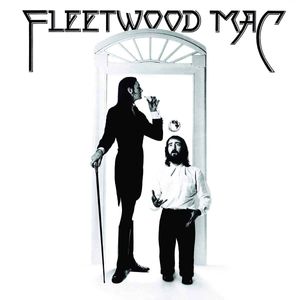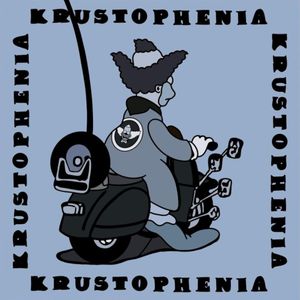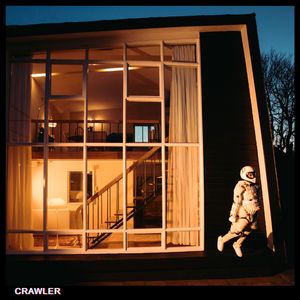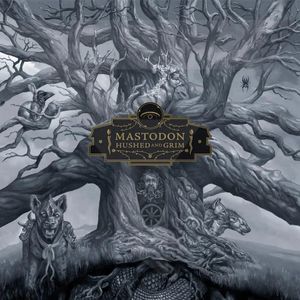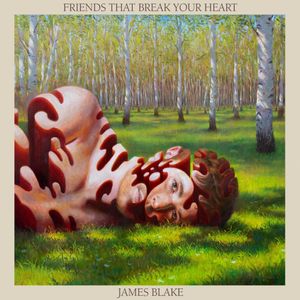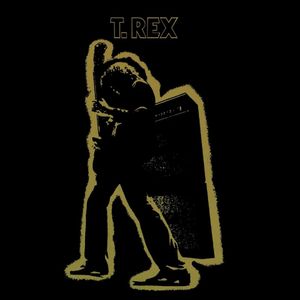2 + 2 = 9: Radiohead’s studio albums ranked
This may surprise you, but here at Audioxide we quite like Radiohead. For each of us the band played a significant role in our own music development — a circumstance not so much coincidental as it is common among a certain demographic. Indeed, Radiohead are not just a masterful rock band, but also the ultimate stepping-stone into other strands of music: whether it’s anxious art-rock, spasmodic electronica, or jazz-tinged soundscapes, Radiohead have got you covered in some way or another. Kid A inadvertently introduced a portion of its listeners to Aphex Twin, for instance, which can only be good in the grand scheme of things.
The band’s albums are crafted with great care and attention to detail and, as A Moon Shaped Pool so clearly proved, they will never settle for stagnation, continuing instead to push their own boundaries. But what is the greatest Radiohead album? While the debate generally narrows to three or four records, cases can be made for most of their discography, such is the quality and consistency of their output. We’ve given it a lot of thought, and following numerous arguments discussions we’ve come to an agreement. Here’s our list, from worst to best, of Radiohead’s studio albums.
9. Pablo Honey (1993)
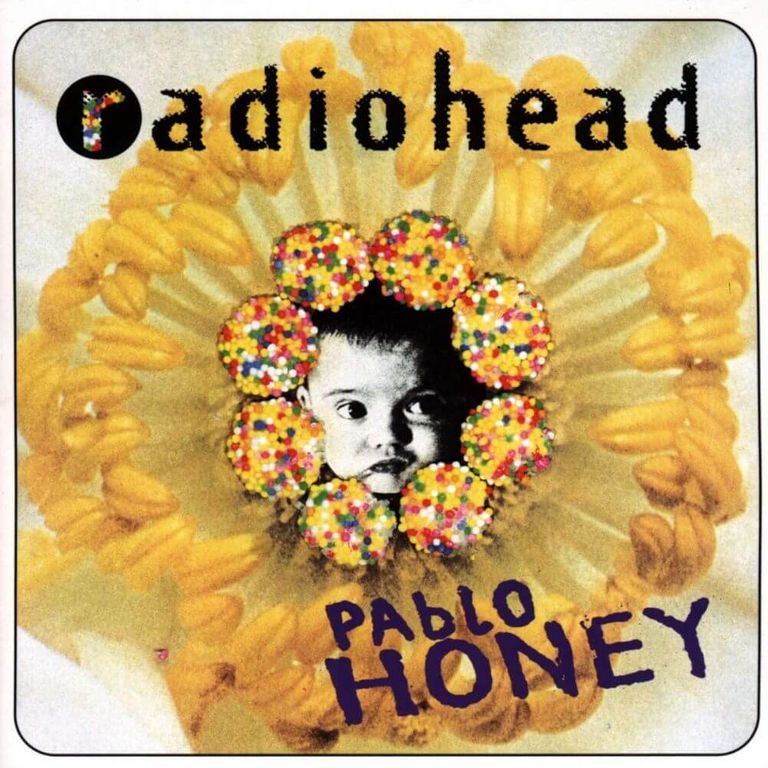
Andrew
I’ve always felt that Pablo Honey is treated a little unfairly, even by those who would admit to being diehard Radiohead fans. Spoilt by the wealth of material elsewhere that, in many cases, has the nous and intricacy to overshadow much of Pablo Honey technically, many listeners only ever give the album a cursory glance. Given a chance, however, there’s still a lot of fun to be had. “You” piques curiosity with a shimmering guitar before erupting into a raucous opener, while “How Do You?” carries a similar mood. The tipper-tapper of the drums and the guitar jam that ensues in the latter half of “Stop Whispering” is a total change of pace to a lot of Radiohead’s output today, as is the acoustic arrangement of “Thinking About You”. These instrumentals are what make Pablo Honey: unashamedly of their time, they’re left raw and jagged. Thom sounds like he’s in a punk band at times, and his lyrics probably won’t leave you scratching your head for long, but there are still defined themes across the tracklist, albeit a little more inward facing than later material. Of course, I can’t really get away without giving some props to “Creep”, where all these elements culminate to produce an early album highlight that has since proven to be a major anthem. There’s angst, there’s immaturity, and there’s even a little insanity, but I can’t help but save a soft spot for Pablo Honey.
8. The King of Limbs (2011)
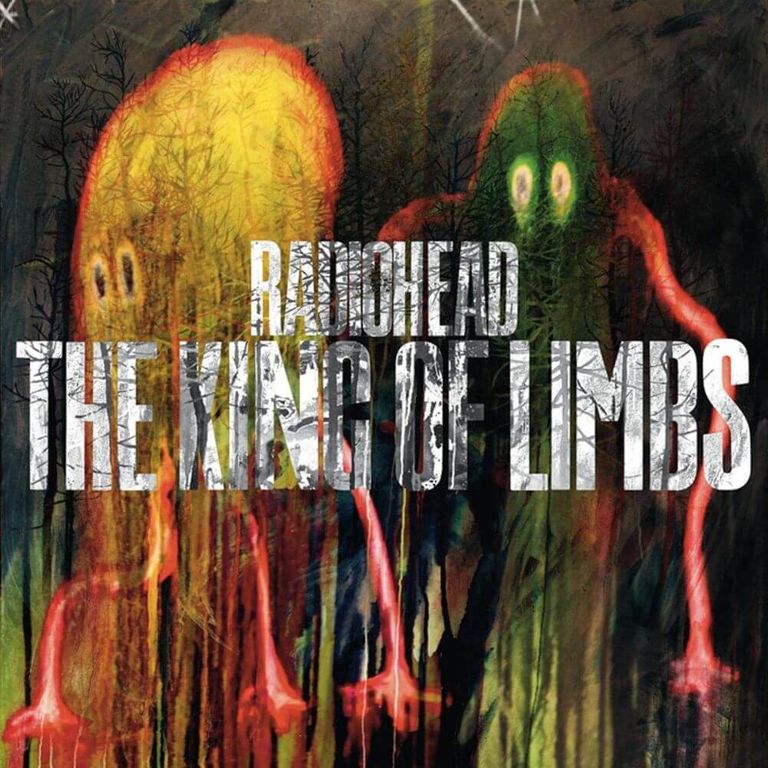
Fred
I remember listening to The King of Limbs for the first time. It was with André during a lunch break, one earphone each, and when it finished we were silent. Not because we were in awe, but because we were indifferent to a new Radiohead album. It was an alien feeling. The group’s brains, present and correct as they are, sound like they’ve been drugged on TKoL. Tame, repressed, and skittish, the album dulls intelligent songwriting with impersonal, almost inhuman production. The progression of “Morning Mr Magpie” is compelling, but malnourished. “Separator” could have been so gorgeous if only they’d let it. In spite of other tracks being better written, “Codex” stands heads and shoulders above the rest of the album simply because it’s allowed to breathe. The impression I get from TKoL is that Radiohead made things subdued because they could; not because it particularly suited the music. Fair or not, that assessment is not something I’m alone in. This said, recent developments have already tweaked my appreciation of the record. There was a five year gap between TKoL and A Moon Shaped Pool — the longest period ever between two Radiohead releases — and the former wasn’t good at bookending the discography during that time. Now that A Moon Shaped Pool has taken up the mantle, I expect TKoL to grow a little in stature. For all its oddities, no other Radiohead record is quite like it. If you want the band at their most skeletal, The King of Limbs’ bony fingers ought to push your buttons.
7. Hail to the Thief (2003)
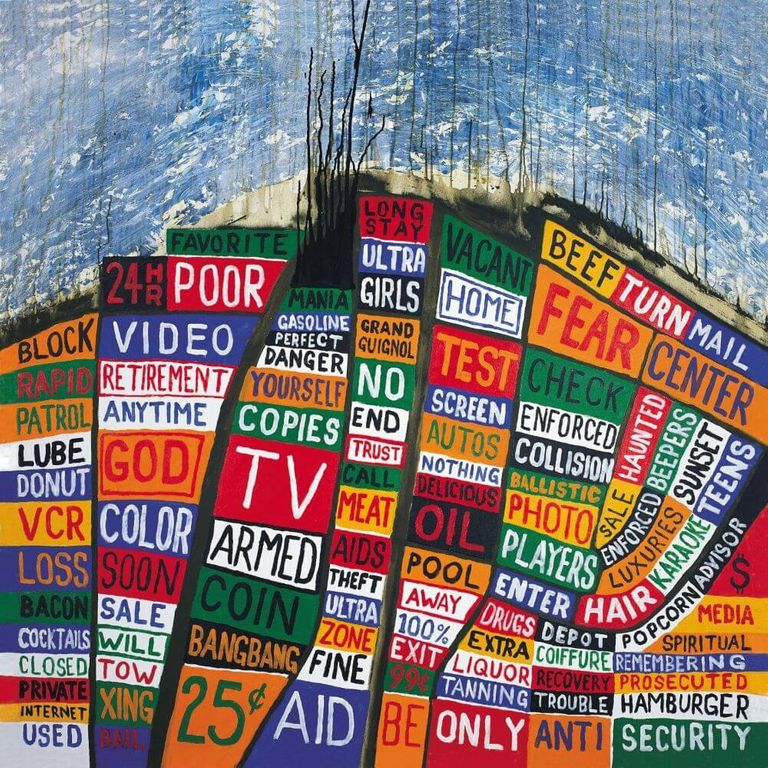
André
Hail to the Thief is the bridge between the two sides of Radiohead that have split fans for well over a decade now. It valiantly attempts to balance both sides of the coin, more so than any other album, though does so at a cost. Clocking in just under the hour mark, this is the longest album in their discography, and unfortunately shows the odd instance of filler. Radiohead clearly had their creative juices flowing, but the record would have benefited from some trimming down. The highlights are spectacular: “2+2=5” is one of their finest rock songs, and a damning political statement that holds as true today as it did then; “Where I End and You Begin” is a surreal extension of the band’s past experiments, with swirling synthesizers driven forward ferociously by Phil Selway’s spectacular drumming; and “There There” is the blessed outcome of 21st century Radiohead deciding to create a reasonably straight-forward anthem, which turned out to be absolutely riveting. Fuelled by Thom Yorke’s resentment for the Bush/Blair administration, this was an angsty record that potentially pointed at a darker future for Radiohead. Instead, with it being followed by the serene and cool-natured In Rainbows, Hail to the Thief turned out to be a red herring all along. Ultimately, it stands as an awkward entry in their catalogue despite its many moments of brilliance.
6. Amnesiac (2001)
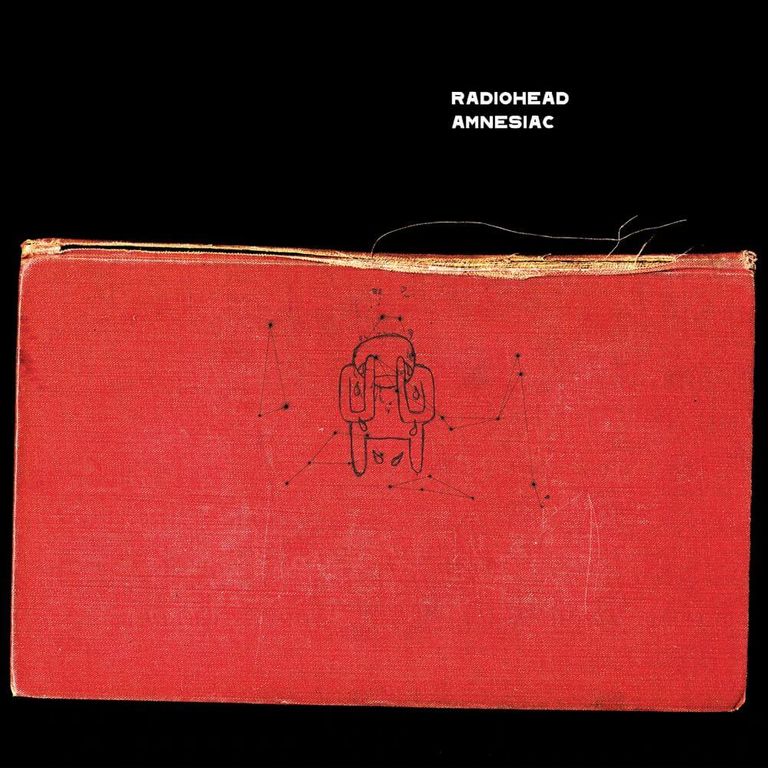
Andrew
Amnesiac feels like a hidden gem to me. Released only 9 months after Kid A and leaning heavily into the electronic sound characteristic of the band’s early 2000s output, it was accused by many of being a B-Sides album in disguise, and didn’t settle as well with both fans and critics. Over time, Amnesiac has earned more respect, and it draws me back time and time again. Alongside “Pyramid Song” and “Like Spinning Plates”, both tracks of which would be sorely missed in a live setting, the entire tracklist does well at setting an eerie, austere atmosphere. Experimenting with found sound sequencing, and sound manipulation, as well as a wider range of instrumentation, Amnesiac gives the listener a lot to be intrigued by. Closing track “Life In a Glasshouse” is indicative of the albums overall change in approach, with its sombre, New Orleans blues, whereas “Like Spinning Plates” looks back in time to become a product of old recordings that the band were otherwise unhappy with (in this case, an otherwise unused version of “I Will”). Combine this with Thom Yorke’s politically charged lyrics, weaving gracefully over the left field experimentation, and Amnesiac makes for an interesting 45 minutes that proves to be very listenable.
5. A Moon Shaped Pool (2016)
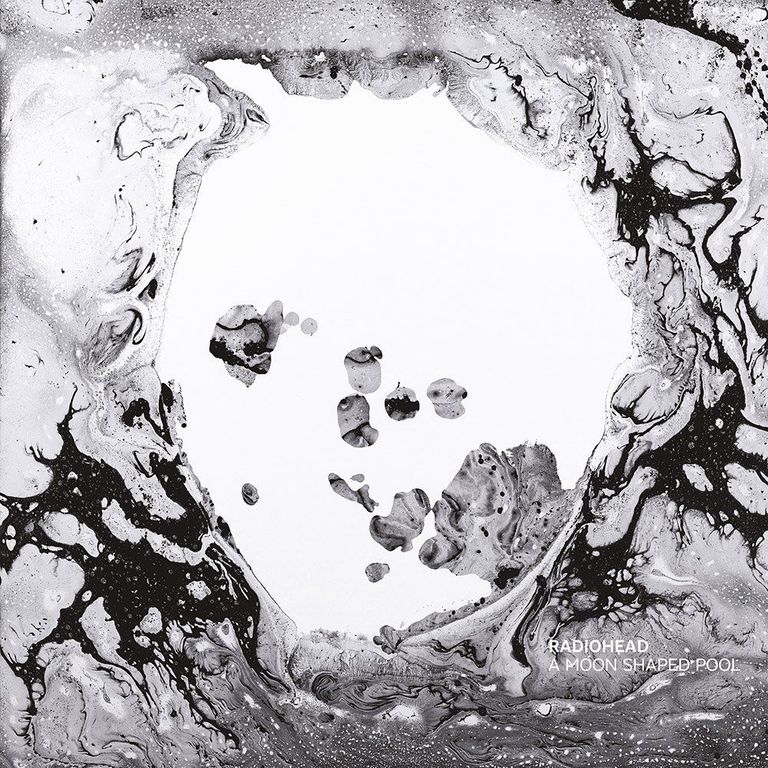
André
Radiohead’s most recent album is a resounding success. A year after its release, A Moon Shaped Pool continues to draw me back into its melancholic world, and though we all sung its praises when it was released, I’ve grown even fonder of it since. Cold, calculated, and contemplative, this is the type of solemn music only Radiohead can muster, turning immeasurable sadness into a thing of beauty. Thom Yorke’s devastating reflections on love should hardly be so startling given his apprehensive character, yet his anguish is genuinely heartbreaking to listen to, particularly when weighed against the youthful, naive musings of older songs like “Fake Plastic Trees”. Beyond Yorke’s sincere vocals lies an ethereal backdrop of reverb soaked instrumentation, supported by wonderful string arrangements that are taken straight from the realms of There Will Be Blood. It may lack the killer tracks to match the likes of “Paranoid Android”, “Street Spirit”, or “Reckoner”, but this doesn’t affect the overall quality or cohesiveness of the record, nor does it suggest Radiohead were anything below their best during the creative process. With age comes a natural decrease of power and intensity, and the band compensates gracefully with gorgeous soundscapes and lushly layered textures. A Moon Shaped Pool is a fabulous album, proving that Radiohead still reign supreme.
Read our full review of A Moon Shaped Pool →
4. The Bends (1995)
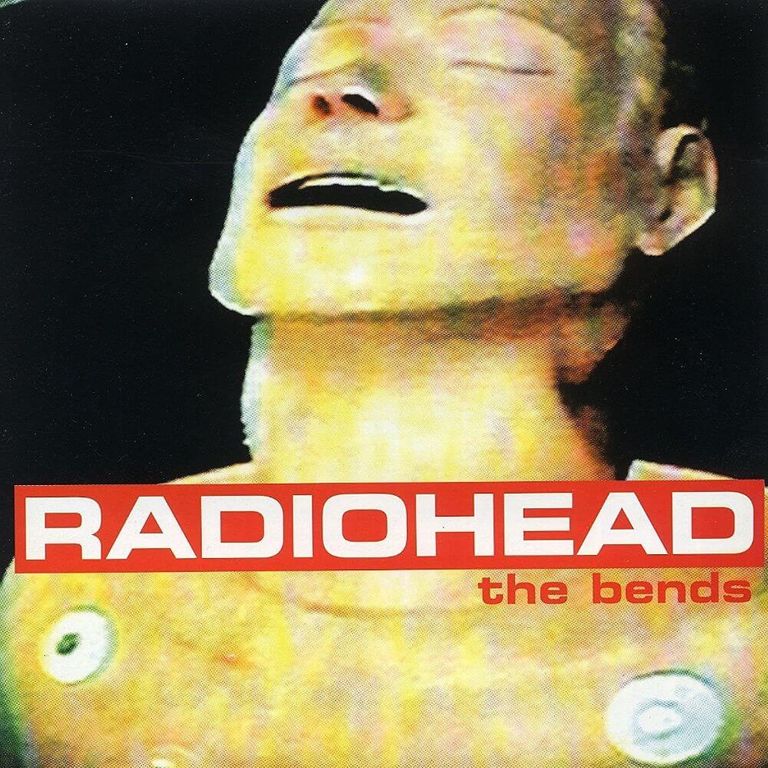
Fred
Before Radiohead told the ‘90s to get stuffed, they churned out one of its flagship records: The Bends. Although it endures more as the home of adored tracks than it does as a unified product — which I think is what places it below the band’s golden trio — the tracks in question are magnificent. Ask a fan for his or her Radiohead favourite songs and a good few are likely to be from The Bends. From the breathless fanfare of “The Bends” and “Just”, which contain more chords than I knew existed, to the sublimity of “Street Spirit (Fade Out)”, The Bends feels like Radiohead at their most effortless. I associate their subsequent work with a more tightly-wound mindset than on show here. The group is looser, wheeling out tune after tune. The frayed, unpolished edges of The Bends reflected the band’s formative, incomplete moves towards microscopic introspection. Yorke’s delirious delivery on the titular track echoes the tone of the album in that sense, teetering in the space between droopy-eyed rock and acute, burrowing self-reflection. There’s something deeply familiar about that space. Radiohead were leaving Pablo Honey behind, bottling a prime adolescence before growing up in OK Computer.
3. Kid A (2000)
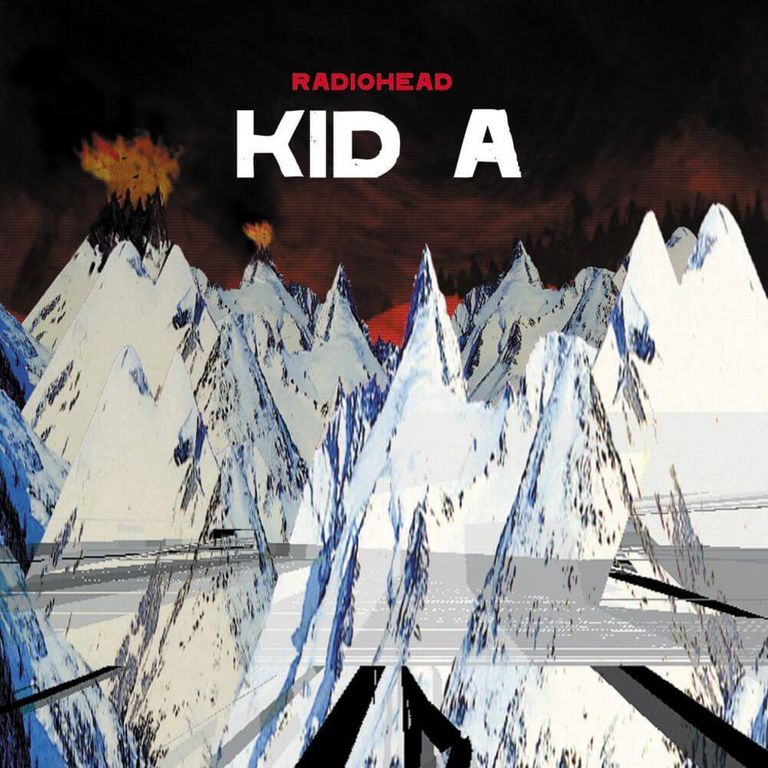
André
When I listened to Kid A for the first time, almost ten years ago, it made total sense to me. I was in a luxurious position: Kid A was my first full Radiohead experience, and I had no preconceptions going into it. I didn’t fall in love with it right away — which 16 year old would? — but I understood the aesthetic almost immediately. Looking back at the initial reaction it received in 2000, the lukewarm reception has never seemed logical to me. What better way to follow up a masterful rock album, than to make a glorious antithesis of it, completely fucking with expectations? As time passed, Kid A gradually received the recognition it so thoroughly deserved. It was never going to capture the appeal of the mainstream audience, and that was never the intention. This was a record constructed out of artistic anxiety—the band had grown tired of the tropes of rock music, but had no real experience in writing anything else. It was a gamble taken out of pure dissatisfaction, rather than striving to make a real statement of intent, or being audacious for the sake of it. As it so happens, the chance was well worth taking. Once those first few chords of “Everything in Its Right Place” hit your ears, everything makes sense: Radiohead were sick of themselves, and Kid A was the just the antidote required. It’s an absolutely essential listen.
2. OK Computer (1997)
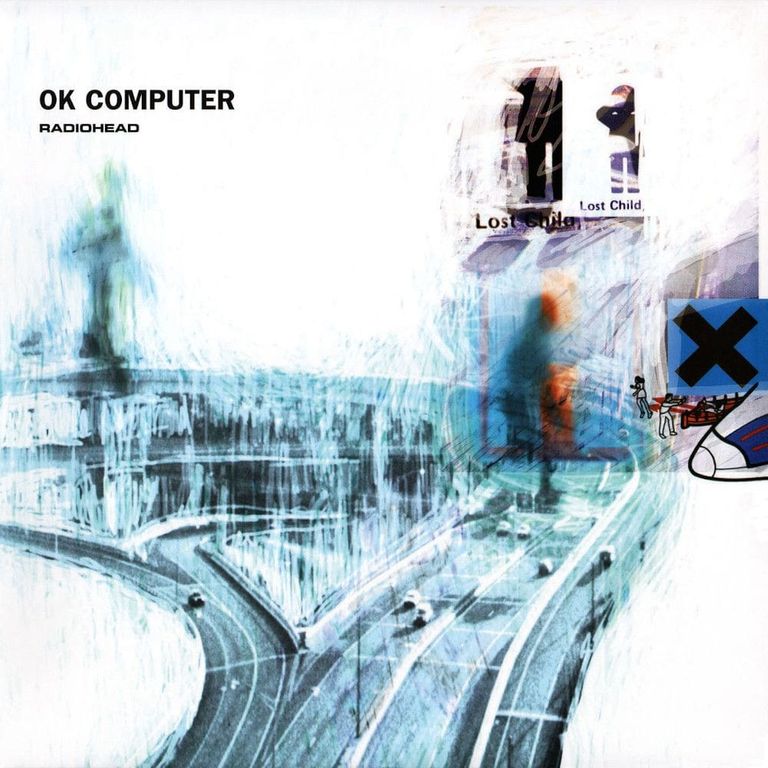
Fred
I don’t consider OK Computer Radiohead’s best record, but it probably is their classic. Its self-contained, meticulous aura of alienation is as familiar today as it’s ever been, and continues to sound incredible. I adore the production. As inexorably bound to the late ‘90s as it is, the album endures as statement in its own right; an anxious, unhappy, alienated statement. I still find it difficult to listen to the whole thing in one go. It’s exhausting. The material weight of songs like “Karma Police” and “Electioneering”, combined with the near desperation of Thom’s delivery throughout—“Subterranean Homesick Alien” being a particular highlight—make for something horribly taut, and sadly familiar. I still think there are a couple of hangers-on in the track list, but I don’t begrudge them being there. The final product is still magnificent. As I said in our review of album, no band does alone together like Radiohead does. Faced with the copious ills and unhappiness of the world, they don’t hold your hand and say, It’s going to be all right; they just say, We know. Sometimes only that will do, and sometimes OK Computer is the only appropriate messenger.
Read our full review of OK Computer →
1. In Rainbows (2007)
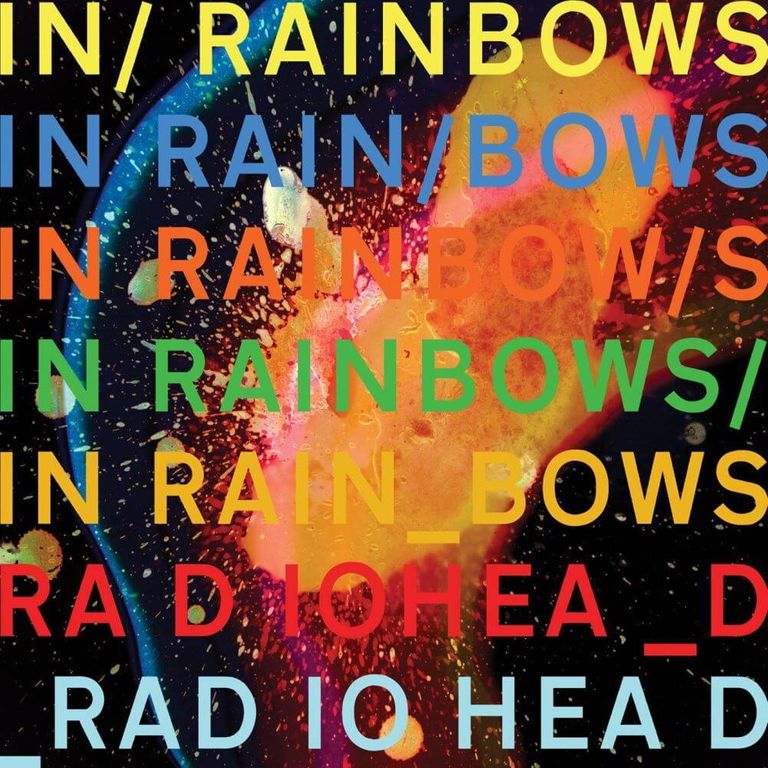
André
In Rainbows is the essential tonic of my adulthood. Its existence means more to me than being Radiohead’s finest record to date — which it absolutely is — as it continues to be such an important aspect of my life. In Rainbows is not just a wonderful listening experience — it’s an enduring source of inspiration. It’s therapeutic beyond words; a remedy that I’ve learnt to rely on. It eases my anxiety, and calms my nerves. It makes me feel safe and emotionally secure. It treated my insomnia more than pills ever could. It continues to lift my spirit during its darkest moments. It reminds me that, no matter what life throws at you, everything will be ok in the end. In Rainbows occupies a deeply personal space in my life, and I know I’m not the only one. It takes a special kind of album to mean so many things for so many different people.
Radiohead’s output has been remarkably consistent since The Bends, and each album has its own merits, but the battle for the top spot has traditionally been between OK Computer or Kid A. Over the past few years however, the general preference has moved away from them both, leaning instead towards the radiant sound of In Rainbows. It’s easy to understand why. In Rainbows welcomes the listener with overwhelming warmth, offering itself as a safety net. The album’s best moments are as comforting as they are exhilarating. “How to Disappear Completely” and “Let Down”, two outstanding tracks from OK Computer and Kid A, are undoubtedly beautiful, but also absolutely devastating, and emotionally crushing. They require the right mood to be indulged. As a stark contrast, tracks in the exquisite realm of “Reckoner”, “Weird Fishes”, “House of Cards”, and “Nude” have a constant space in which to be appreciated. Beauty is beauty, sure, but hope reigns eternal. In Rainbows may not hold the same cultural significance as other Radiohead albums, but it will forever be my favourite, and I doubt any record will affect my life in quite the same way.
Fred
In Rainbows is a crash course in climbing out of a bad place and learning to feel again. As melancholy as it is, I find it unspeakably uplifting. My personal experience of such dire straits is limited—misplaced keys, running out of Earl Grey, squandered love, you know how it goes — but In Rainbows is too true to the soul not to be familiar. After years of tightly wound, experimental music, Radiohead tipped back into warmth, wedding the best elements of both worlds. Opener “15 Steps”, with its progression from drum machine to lush guitar, signposts this tipping point, and what follows is as close to perfection as Radiohead is every likely to reach; a release of thoughts and emotions it felt like they’d been processing for years. The band say the album was a struggle, and I don’t doubt that, but they seemed to cope. A lot of bands would be proud to have the In Rainbows’ B-sides as a career best-of album. The standard is that high. The divide between music and the soul blurs during songs like “Weird Fish/Arpeggi” and “House of Cards”, and the rest, really. Mushy language, but what can I say, I think it’s that good. There’s a beautiful sense of completion to it. For whatever reason, I’ve always viewed OK Computer, Kid A, and In Rainbows as a kind of androids-learning-to-feel trilogy. Who knew Radiohead — of all people — were capable of a happy(ish) ending?
Andrew
In Rainbows is difficult to discuss without becoming a tad sentimental. Released right in the middle of my teenagehood, the excitement for its release and the constant replays I demanded of it adds a considerable bias to my judgement. Just the opening minute of “15 Steps”, with its fidgety drums and bass line that pounds into your left ear forty seconds in, continues to raise the hairs on the back of my neck. “Nude” still makes for one of the most beautiful, visceral experiences on record: weightlessly gliding across its four minutes, it sends its listener on a rollercoaster of cliff face silences and lush, haunting instrumental beds, while Thom Yorke’s cavernous vocals lilt above. Familiarity from previous albums can still be found in driving, fast-paced tracks like “Jigsaw Falling Into Place” and “Bodysnatchers”, with earthy bass tones in the former and crunching guitars in the latter. But In Rainbows sets its sights on new ground too, relying on cinematic string arrangements in “Faust Arp”, and melding electronic manipulation and acoustic elements in “House of Cards” to create atmospheres that are daunting, yet luscious. Even without these large arrangements, “Videotape”, achieves a beautiful eeriness that leaves an impression on me long after its final chord dissolves. When you consider the often-forgotten second disc, which I feel is of equal quality to the first, you have an incredible album that simply cannot be forgotten. In Rainbows is essential listening as far as I’m concerned—an album that will be in my regular rotation for years to come.
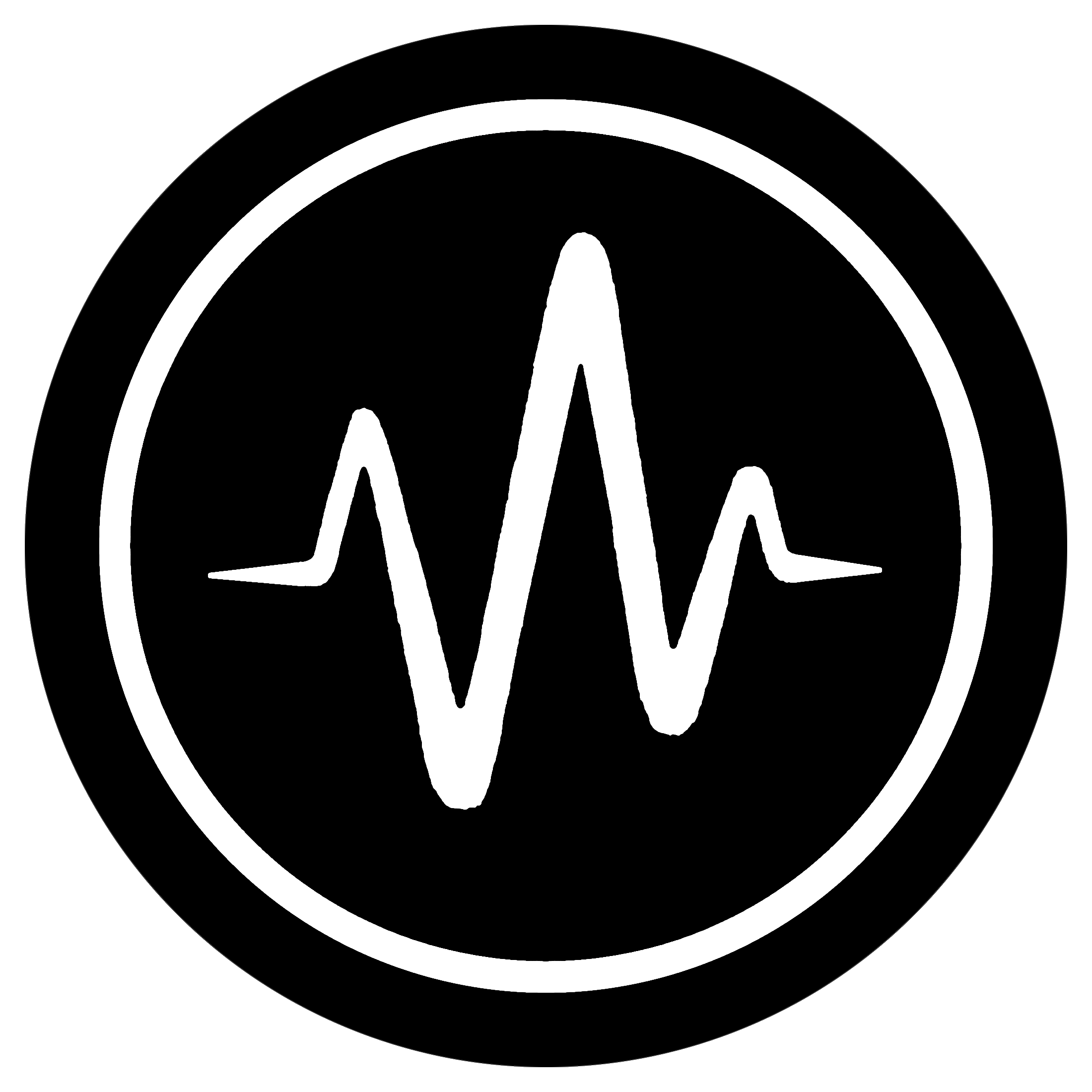
Related Posts
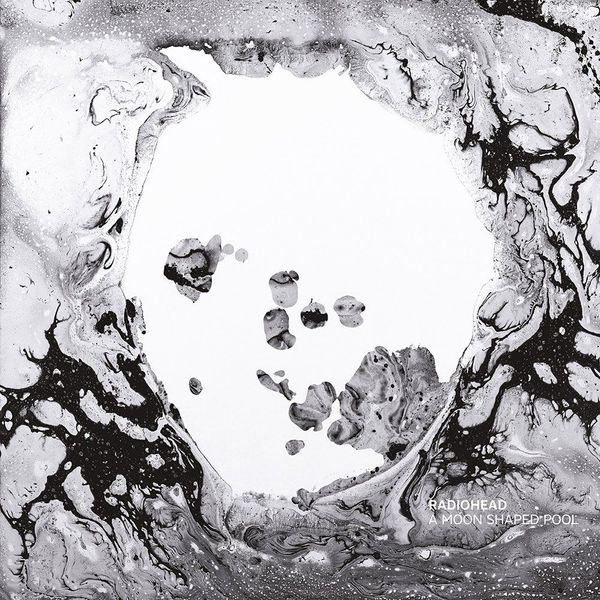
A Moon Shaped Pool // Radiohead

Earth // EOB
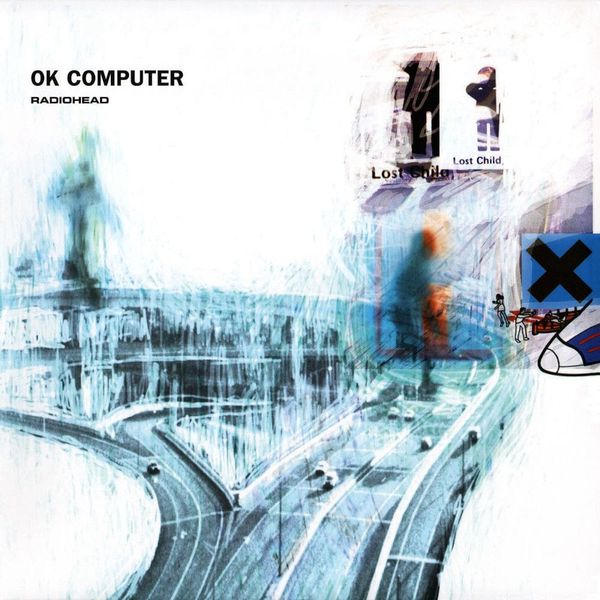
OK Computer // Radiohead

